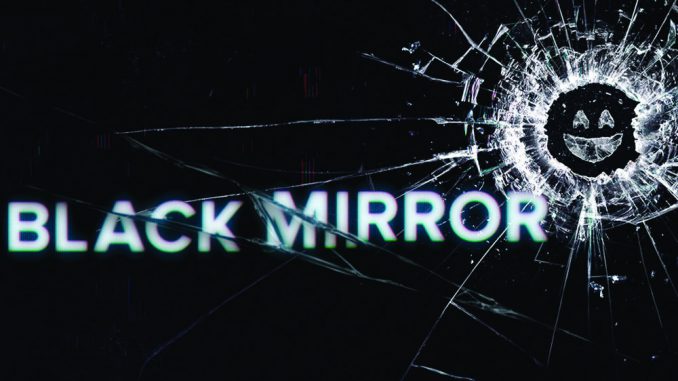
By Adelina Gonzalez, Staff Writer
Ah, yes Black Mirror, a show filled with episodes of horrifying nonsequential scenarios meant to make you question life and everything you’ve ever known.
Black Mirror is a dark anthology, reminiscent of the 1960s science fiction series, The Twilight Zone. It has heavy elements of science fiction and is usually set in an alternative present or foreshadows a dark, near future.
Originally an exclusively British TV show created by Charlie Brooker, it was picked up by Netflix in September of 2015 and as a result received a boost in popularity with American audiences as well as gaining an international cult-like following. In 2017, it won its first Emmy award for Outstanding Writing For A Limited Series, and overall, it’s just a well executed show.
So what do I, a random 18-year-old kid from Kenosha, think about an internationally and critically acclaimed British TV show? As the self proclaimed “world’s biggest chicken,” I’ve never been so fascinated by a horror concept in my life.
Black Mirror is that show that you dread watching, but just can’t look away from. It’s intriguingly upsetting. Part of the reason it’s so terrifying is the fact that its focus is on how the world can go so wrong with just one misstep.
One aspect I found to be really interesting was the shift of the show’s focus from every-day-what-if scenarios to the dangers of technology. It’s no secret that we live in the age of tech; I mean the first thing I see in the morning and the last thing I see before I go to bed is surprisingly not my imaginary husband, but my iPhone screen. It’s because these things are so common in our lives and nothing has gone terribly wrong thus far, it’s easy to get comfortable and have that “what could possibly go wrong?” mentality.
A perfect example of this is the episode “Arkangel,” the second episode of Season 4. (Warning I’m about to hit you up with some serious spoilers.) From the beginning we are given a look at a seemingly loving but uncomfortably close mother-daughter relationship. Single mother Marie experiences the near loss of her only daughter, Sarah, not once, but twice, once at birth and the next at a park when Sarah was young.
Those back-to-back, traumatic experiences lead Marie to take helicopter parenting to a scary extreme by implanting a GPS tracking device inside her own daughter’s head. This overprotective parenting eventually leads Sarah to run away from her mother, making Marie the cause for the very thing she feared most: the loss of her daughter.
Even though the superficial focus of the show has shifted to a technological horror story, Black Mirror, at its core, has always really been about the fallibility of human nature.
Black Mirror has a way of making its viewers feel like they know everything whilst also questioning everything they know. That’s one of its best qualities. What Black Mirror also does very well is getting us to sympathize with the characters, even though the characters themselves are the cause of their own downfall. Isn’t that human nature though? Oftentimes, we are the source of our own pain and suffering.
If there is anything to learn from this series it is this: Caution is everything. I would give it a rating of four out of five stars because even though it is over sensationalized at times, it is very well executed.
